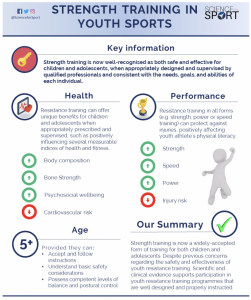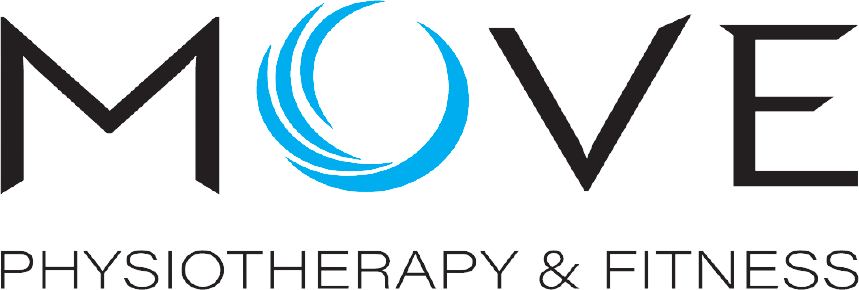- June 9, 2021
- Posted by: Daniel Ryan
- Categories: Exercise, exercise rehab, Gym Training, Move Physiotherapy, physio, sports physio

By Megan Shine
Physiotherapist and Exercise and Sport Scientist
We all want our kids to grow up strong and healthy while nurturing their sporting development. However, there are conflicting ideas and mis information surrounding how best to do this. It can make the prospect very daunting, and at the end of the day we want what is best for our child. This blog will clear the confusion and clarify some common myths associated with strength training in children, while outlining the most current recommendations, so you can feel confident in your child’s sporting development and injury prevention.
Research indicates that the positives far outweigh the negatives associated with strength training (for kids) and in conjunction the research supports that resistance training can elicit significant performance improvements, specifically in muscular strength and endurance, power, agility, balance, coordination overall high levels of motor development, connective tissue and bone strength, behavioural benefits and reduction in negative anthropometric values while most importantly reducing both severity and incidence of injuries. These attributes give the child a substantial advantage in maintaining a healthy weight whilst providing a great rehabilitation platform for various conditions like cystic fibrosis and osteopenia, Osgood-Schlatter’s disease and patellofemoral pain (David G. Behm 2008). A study done by Dahab, 2009, outlined that Children can improve strength by 30% to 50% after just 8 to 12 weeks 2x per week of a well-designed and supervised strength training program.
MYTHS
- Overly Buff kids: If you are worried your child is going to have a significant increase in muscle tone/mass, you can be rest assured there is no evidence to support the correlation of strength training and increased muscle mass in children.
- Growth plate Stress fractures from too much explosive training / jumping recent research suggests this to be untrue. Children are found to have a lower risk of growth plate fractures due to increased strength in childhood as opposed to later in adolescence (Chu. D 2006)
- Training stunts growth: The myth that kids will stop growing if they lift weights too young is not supported by any scientific evidence or research. “(Resistance training programs) are relatively safe and do not negatively impact growth and maturation of pre- and early-pubertal youth.” (Malina, 2006)
- Not safe: commonly injuries related to strength training, including epiphyseal plate fractures and lower back injuries, are primarily attributed to the misuse of equipment, inappropriate weight, improper technique, or lack of qualified adult supervision. (Dahab, 2009)
As children mature and develop, in most cases it is a non-linear development pathway, commonly kids seem to grow taller ‘overnight’ much faster than the muscles can keep up. At these times it is common for kids who are particularly active to develop overtraining and or growing pains. This non-linearity to childhood maturation has a great impact on the adequate training prescription required for each child. Having a physiotherapist and strength and conditioning coach to correctly load and progress your child through a specialised program, common loading errors and overuse injuries can be avoided.
There is no minimum age requirement for participation in a youth resistance-training programs the child must however have the fundamental competence to follow instructions, understand safety and have basic motor control and balance. With all this being said, before you go joining your kids up to the local gym, there should be an emphasis on correct technique and detailed progression and loading. This is where your physiotherapist comes in. Firstly, before a child starts a training program, the physiotherapist, the child, and the parents should discuss the goals and expectations of the child.
If you are going to take one thing away from this blog is that if your child/ children intend on playing sport, or even if they intend of living a long, injury-free life, do not be hesitant to put your kids in a resistance program. Here at Move Physiotherapy and Fitness we provide a youth long term athlete development program within a fun and motivational training environment. These sessions are programmed and supervised by qualified physiotherapists who are also qualified in strength and conditioning and exercise and sport science. We want to the best for your children because after all, when it comes to the health of your kids, we’re in this together!

REFERENCES
Chu. D, F. A. (2006). Progressive Plyometric Training for Kids, Monterey: Healthy Learning
Dahab, K., (2009)., Strength Training in Children and Adolescents: Raising the Bar for Young Athletes? Sports Health Journal, (1)3: 223-226, DOI: 10.1177/1941738109334215
David G. Behm, A. D. F., Baraket Falk, and Panagiota Klentrou (2008). Canadian Society for Exercise Physiology position paper: resistance training in children and adolescents. Applied Physiology, Nutrition and Metabolism Journal 33(3): 547-566.
